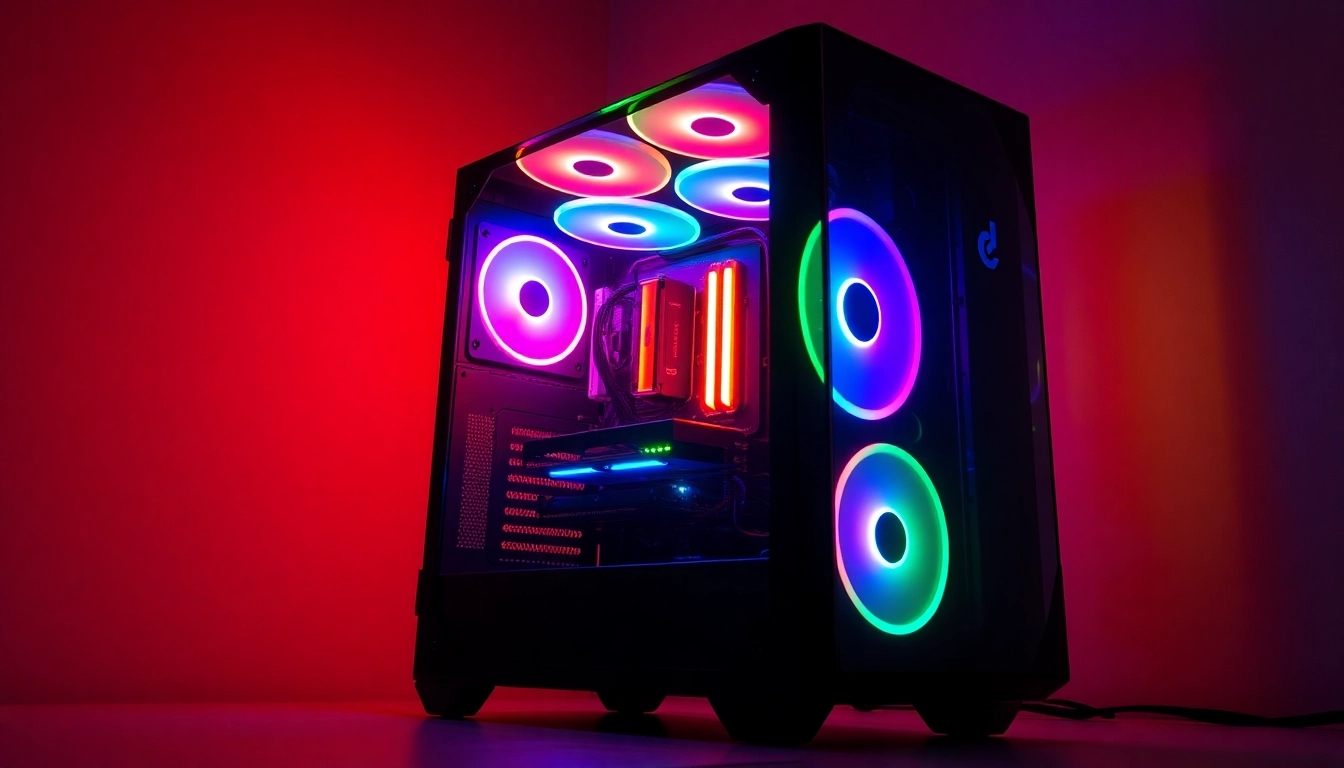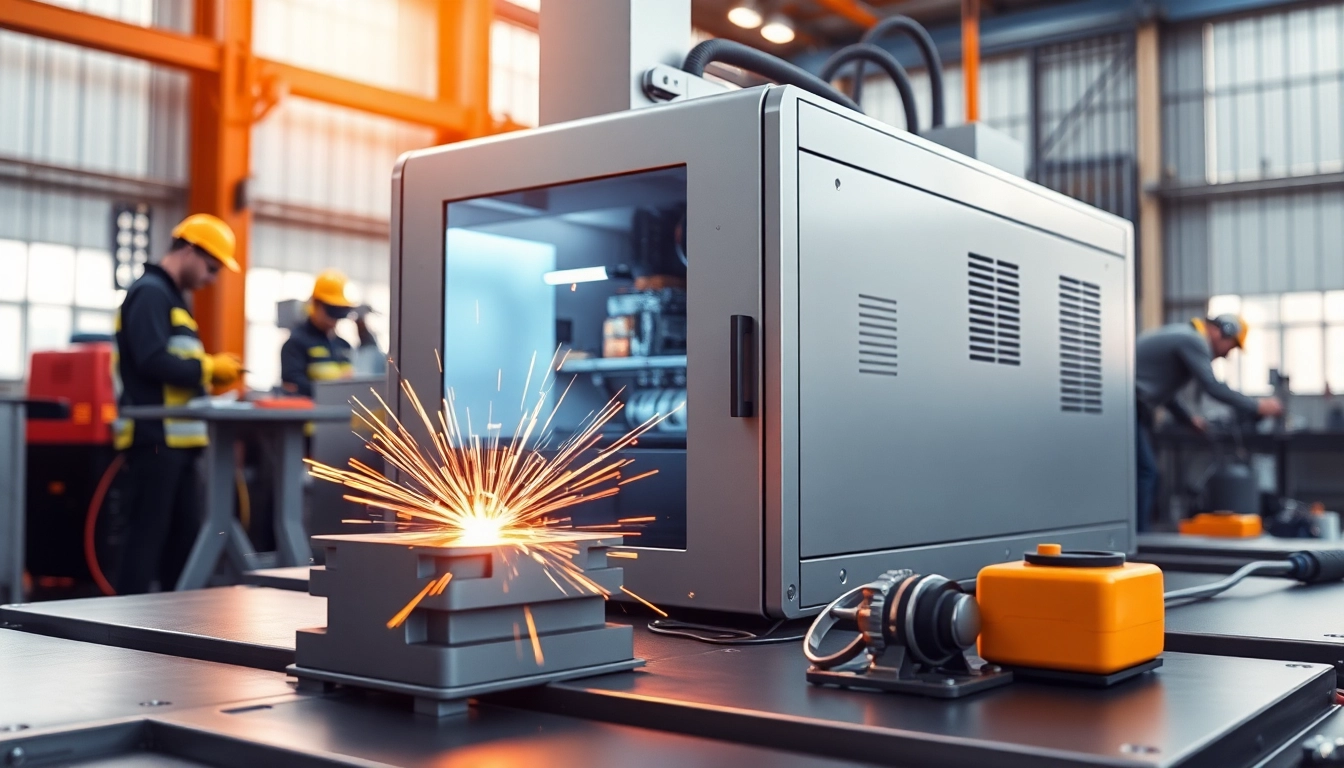Understanding the Importance of a Quality PC Case
Building a custom PC, whether for gaming, professional work, or general use, starts with the right components, and one of the most critical elements of this assembly is the PC CASE Supplier. A quality PC case not only houses your components but also plays a significant role in their performance and longevity. This article explores the multifaceted importance of a PC case, types of cases, and how a reputable supplier influences your PC building experience.
What is a PC Case?
A PC case, also known as a computer chassis or tower, serves as the physical enclosure that holds all the critical components for your computer system. This includes the motherboard, CPU, GPU, power supply, storage drives, and cooling systems. Beyond mere protection, a well-designed case contributes to effective airflow, optimal cooling, and even aesthetic appeal. Understanding the role of a PC case is paramount for anyone looking to customize or build a PC that meets their specific needs.
Types of PC Cases Available
There’s a wide variety of PC cases available on the market, each designed to cater to different needs and preferences. Here are the main types of PC cases:
- Tower Cases: These are some of the most common types and are typically categorized into full tower, mid tower, and mini tower. Full tower cases provide ample space for extensive cooling and storage solutions, while mini tower cases are compact and suitable for builds with fewer components.
- Cube Cases: Offering a unique perspective on design, cube cases allow for better airflow and offer more versatility in component arrangement. They often provide a balance between size and expandability.
- HTPC (Home Theater PC) Cases: Designed for home theater setups, these cases often mimic the aesthetics of audio-visual equipment and facilitate quiet operations while keeping components cool.
- Open-Air Cases: These are less about enclosure and more about showcasing components. Open-air designs allow for maximum airflow but may collect dust and expose components to environmental damage.
How a PC CASE Supplier Impacts Your Build
The choice of a supplier can greatly influence your experience in multiple ways:
- Quality Assurance: Reputable suppliers provide high-quality cases that meet industry standards, ensuring user safety and product longevity.
- Customer Support: Suppliers with strong support services can offer help in terms of installation guides and post-purchase assistance, enhancing your overall building experience.
- Availability of Parts: Some suppliers provide not just cases but also compatibility information for other hardware, reducing the hassle of searching for compatible components separately.
Key Features to Look for in a PC Case
When selecting a PC case, several features should be considered to ensure that it meets your needs effectively. Here are some key features to keep an eye on:
Size and Compatibility Considerations
Not all components will fit into every case, making size a crucial aspect to consider. Here are a few factors to think about:
- Form Factor: Determine the form factor of your motherboard (ATX, microATX, mini-ITX) and choose a case that supports it. This is essential for ensuring that all components fit securely.
- Graphics Card Clearance: Some high-end GPUs require considerable vertical space. Ensure that the case you choose has enough clearance.
- Cooling Solution Space: If you plan on using larger cooling solutions, be mindful of their size and fit within the case.
Cooling and Airflow Features
Ensuring that your components remain cool is vital for maintaining performance and longevity. Look for the following features:
- Fan Mounts: Check how many fans can be installed and whether the case supports various sizes of fans.
- Mesh Panels: Cases with mesh panels can enhance airflow to keep components cooler.
- Water Cooling Solutions: If you’re considering liquid cooling, ensure that the case has the necessary mounts and space for radiators.
Design Aesthetics and Personalization
While functionality is important, personal preference plays a role, too. Consider cases that allow for customization and aesthetics, such as:
- Color Options: Some cases come in various colors or designs to fit your style.
- Tempered Glass Panels: These cases allow you to showcase your components and RGB lighting setups.
- Cable Management Features: Design elements that help with cable management can enhance the overall look and airflow.
Identifying Reliable PC CASE Suppliers
Finding a reputable supplier is essential for securing quality products and satisfaction in your build. Here’s how to identify reliable PC case suppliers:
Top Brands in the PC Case Market
Some brands have established themselves as leaders in the PC case supply sector, known for their quality and reliability. Companies such as Corsair, NZXT, and Lian Li are examples of suppliers with a strong reputation.
Evaluating Supplier Reputation and Reviews
Before purchasing, consider researching the reputation of suppliers through:
- Customer Reviews: Look for real user reviews on platforms like Newegg or Amazon. Positive and negative feedback can provide insight into product quality.
- Tech Forums: Engage with communities on websites like Reddit or PCPartPicker to hear experiences from fellow builders.
Price vs. Quality: Making the Right Choice
Choosing a supplier often means finding a balance between price and quality:
- Affordable Options: While it’s tempting to choose the cheapest option, reliability and material quality are paramount for your build’s durability.
- Long-term Investment: Consider the case a long-term investment; prioritize features that add durability and functionality.
Steps to Choose the Best PC Case for Your Needs
Choosing the right PC case doesn’t have to be a daunting task. Here are steps to help you make the right decision:
Assessing Your Build Requirements
Identify how you will use your PC — gaming, graphic design, or everyday tasks — and build your requirements around that.
Understanding Your Budget Constraints
Determine how much you’re willing to spend on the case. A good range for quality mid-range cases typically starts at $70 and can go up significantly based on features.
Consulting User Guides and Expert Advice
Leverage resources available online. Manufacturer websites, forums, and technology blogs can provide valuable insights and recommendations tailored to your build.
Future Trends in PC Cases and Their Suppliers
The landscape of PC cases and suppliers continues to evolve with advancements in technology. Here’s what to watch out for:
Emerging Technologies in PC Case Design
Innovations in material science are leading to cases that provide enhanced protection and weight reduction. For instance, cases that utilize aluminum instead of steel can offer greater durability and a premium look.
Eco-Friendly Options from PC CASE Suppliers
As environmental awareness grows, many suppliers are now offering eco-friendly options, utilizing recycled and sustainably sourced materials for their products.
What to Expect in Upcoming Releases
Watch for features such as built-in RGB lighting, customizable internal layouts, and more advanced cooling solutions. As technology progresses, many PC case suppliers will continue to innovate and enhance their offerings.















Leave a Reply